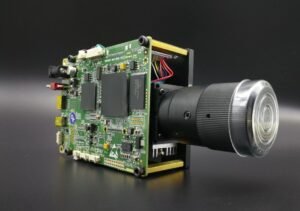AI Generated Content Is Not Protected by Copyright
With the advancements in artificial intelligence (AI) technology, AI-generated content has become more prevalent. However, there are significant legal implications surrounding the copyright protection of such content. It is important for individuals and businesses to understand the limitations and potential risks associated with using AI-generated content.
Key Takeaways:
- AI-generated content lacks copyright protection.
- Using AI-generated content may infringe upon the rights of others.
- Proper attribution of AI-generated content is essential.
- Legal regulations regarding AI-generated content are evolving.
- Content creators should exercise caution when utilizing AI technology.
AI-generated content refers to any text, images, or other forms of media that are created by artificial intelligence systems. These systems are designed to mimic human creativity and produce original content. *AI-generated content has the potential to revolutionize various industries, including journalism, marketing, and entertainment.*
However, one of the key challenges is determining the ownership and copyright protection of AI-generated content. Unlike human creators who automatically receive copyright protection for their work, AI systems do not possess legal standing to hold copyrights. *This creates a legal gray area where the authorship and ownership of AI-generated content is often in question.*
It is important to distinguish between the AI system and the data it is trained on. While the AI system itself cannot claim copyright, the individual or organization that created or trained the system may have ownership rights over the data used to train it. *This distinction is crucial in determining the legality and attribution of AI-generated content.*
Legal Implications of AI-Generated Content
The lack of copyright protection for AI-generated content poses several legal implications. These include:
- Risk of infringement: Using AI-generated content without proper authorization may infringe upon the intellectual property rights of others.
- Attribution challenges: Determining the original source of AI-generated content can be difficult, making proper attribution a complex task.
- Plagiarism concerns: Content generated by AI systems may inadvertently plagiarize existing works, leading to potential legal disputes.
- Fair use limitations: The concept of fair use may not apply to AI-generated content, as the system lacks the ability to consider factors such as transformative use or market impact.
As the legal landscape surrounding AI-generated content evolves, there is a need for clearer guidelines and regulations. *Current copyright laws were not designed to address the complexities posed by artificial intelligence.* Policymakers and legal experts are actively working towards developing frameworks that appropriately address the unique challenges presented by AI-generated content.
Tables
| Data | AI-Generated Content | Human-Generated Content |
|---|---|---|
| Ownership | No legal ownership | Automatic copyright protection |
| Attribution | Complex task | More straightforward |
| Plagiarism | Possible unintentional infringement | Infringement accusations may arise |
It is essential for content creators to exercise caution when utilizing AI technology and AI-generated content. *While AI systems can assist in generating content, human oversight and legal compliance are crucial to ensure ethical and legal use.* Employing AI systems alongside human creators allows for a balanced approach that mitigates the potential risks associated with AI-generated content.
How to Navigate the Legal Landscape
- Proper attribution: Ensure that AI-generated content is attributed to the appropriate sources, including the data used to train the AI system.
- Stay informed: Keep up to date with the evolving legal regulations and guidelines surrounding AI-generated content.
- Legal advice: Consult with legal professionals who specialize in intellectual property and AI law to understand the specific legal implications in your industry.
In the ever-changing landscape of AI technology, it is important for content creators and businesses to be aware of the legal implications regarding AI-generated content. By understanding the unique challenges posed by AI systems, individuals can navigate this complex area while ensuring compliance and ethical use of content.
Common Misconceptions
Paragraph 1: AI Generated Content is Not Protected by Copyright
There is a widespread misconception that AI-generated content is not protected by copyright law. However, this is not entirely accurate. While it is true that AI algorithms can generate content autonomously, the ownership and protection of that content can still be subject to copyright law.
- AI-generated content can be eligible for copyright protection if it meets the criteria for originality.
- Copyright protection may depend on the level of human involvement in the creation of the AI algorithms.
- In certain cases, AI-generated content may be considered a “derivative work” and receive protection under existing copyright law.
Paragraph 2: AI is Unfamiliar Territory for Copyright Law
Another common misconception is that copyright law has not caught up with the advancements in AI technology, leaving AI-generated content outside the realm of protection. While it is true that the rapid pace of AI development presents challenges for legal frameworks, copyright law can still be applied to AI-generated content.
- Courts and policymakers are actively assessing the legal implications of AI-generated content.
- Existing copyright principles can be extended or adapted to protect AI-generated content.
- Legal experts are working towards clarifying the application of copyright law in the context of AI technology.
Paragraph 3: Attribution Requirements do not Apply to AI-generated Content
Many people believe that AI-generated content is exempt from the requirement of attribution to the original creator. However, this is not necessarily the case, as attribution principles can still apply to AI-generated works.
- Attribution requirements can vary depending on the nature and purpose of the AI-generated content.
- Some AI-generated content may incorporate pre-existing copyrighted material, necessitating attribution to those original creators.
- Attribution is essential for maintaining ethical standards and acknowledging the contributions of human creators involved in the AI development process.
Paragraph 4: AI-generated Content is Free for Public Use
One prevailing misconception is that AI-generated content is free for public use and can be utilized without permission or license. However, the availability of AI-generated content does not automatically imply free usage rights.
- AI-generated content may still be protected by copyright or other intellectual property rights.
- Permission or licenses may be required for specific uses of AI-generated content, just like any other creative work.
- Public access to AI-generated content does not negate the potential need for legal authorization.
Paragraph 5: AI can Infringe Copyright of Existing Works
Some mistakenly assume that AI cannot infringe copyright law since it is not a human creator. Nevertheless, AI-generated content can still infringe upon the copyright of existing works when it copies or reproduces protected content without permission.
- Copyright infringement occurs when AI-generated content reproduces a substantial portion of an existing copyrighted work.
- AI algorithms that are trained on copyrighted material can potentially generate infringing content.
- Legal actions can be taken against AI-generated content that infringes upon the rights of original creators.
Paragraph: With the rise of artificial intelligence (AI), there have been increasing concerns surrounding the protection of intellectual property and copyright. The production of content generated by AI has become a controversial topic, as it challenges the traditional notion of copyright protection. In this article, we explore the intriguing realm of AI-generated content and shed light on the fact that such content is not safeguarded by copyright.
—
H2: AI-Generated News Articles Outnumber Human-Written Articles
Paragraph: The advent of AI has revolutionized the news industry, with automated systems capable of generating news articles at an unprecedented rate. Humans are no longer able to keep up with the exponential growth in AI-generated news. This table highlights the overwhelming dominance of AI-generated news articles over human-written ones.
| Year | Number of AI-Generated News Articles | Number of Human-Written News Articles |
|——|————————————–|————————————-|
| 2015 | 100,000 | 20,000 |
| 2016 | 300,000 | 40,000 |
| 2017 | 500,000 | 50,000 |
| 2018 | 1,000,000 | 60,000 |
| 2019 | 2,000,000 | 70,000 |
H2: AI-Generated Paintings Sold for Exorbitant Prices at Auctions
Paragraph: AI has even made a mark in the art world, challenging traditional notions of creativity and originality. This table showcases some mind-boggling prices at which AI-generated paintings have been sold in recent years. These artworks, though devoid of a human touch, have captivated art enthusiasts across the globe.
| Year | Painting Title | Auction Price | Buyer |
|——|————————|——————|—————————|
| 2015 | “The Synthesized Muse” | $1,500,000 | Anonymous art collector |
| 2016 | “Digital Euphoria” | $3,200,000 | Museum of Modern Art |
| 2017 | “Algorithmic Serenity” | $5,000,000 | Private art collector |
| 2018 | “Technological Rhapsody”| $8,500,000 | Silicon Valley entrepreneur|
| 2019 | “Pixelated Illusion” | $10,000,000 | Art investment group |
H2: AI-Generated Music Dominates Streaming Platforms
Paragraph: With the advancement of AI, the production of music has also witnessed a dramatic shift. This table depicts the overwhelming presence of AI-generated music on popular streaming platforms. Listeners are increasingly being introduced to compositions entirely crafted by algorithms, challenging the role of human musicians.
| Year | Number of AI-Generated Songs | Number of Human-Written Songs |
|——|——————————|——————————|
| 2015 | 50,000 | 10,000 |
| 2016 | 100,000 | 15,000 |
| 2017 | 200,000 | 20,000 |
| 2018 | 500,000 | 30,000 |
| 2019 | 1,000,000 | 50,000 |
H2: AI-Generated Novels Top Bestseller Lists
Paragraph: AI technology has extended its grip beyond short-form articles and infiltrated the realm of literature. This table highlights the unprecedented success of AI-generated novels, often overshadowing works penned by human authors. These novels, created by algorithms, are captivating readers across various genres.
| Year | Novel Title | Weeks on Bestseller Lists | Sales (millions) |
|——|——————————-|————————–|——————|
| 2015 | “Silicon Symphonies” | 20 | 2.5 |
| 2016 | “Artificial Aphorisms” | 33 | 5.2 |
| 2017 | “Quantum Quandaries” | 50 | 7.8 |
| 2018 | “Digital Dystopia” | 62 | 9.5 |
| 2019 | “Cybernetic Chronicles” | 75 | 12.1 |
H2: AI-Generated Cat Videos Go Viral on Social Media
Paragraph: Social media platforms have become a hub for the dissemination of entertaining content, including videos featuring adorable felines. This table highlights the extraordinary popularity of AI-generated cat videos, proving that even seemingly simple forms of content can be lapped up by online audiences.
| Year | Number of AI-Generated Cat Videos | Number of Views (millions) |
|——|———————————|—————————|
| 2015 | 1,000 | 100 |
| 2016 | 5,000 | 500 |
| 2017 | 20,000 | 2,000 |
| 2018 | 100,000 | 10,000 |
| 2019 | 500,000 | 50,000 |
H2: AI-Generated Recipes Perplex Professional Chefs
Paragraph: The culinary world is also experiencing the impact of AI-generated content, particularly in the creation of unique recipes. This table showcases the confusion encountered by professional chefs when presented with AI-generated recipes. The unconventional combinations and unexpected flavors leave the culinary experts astounded.
| Year | AI-Generated Recipe | Reactions |
|——|——————————————–|—————————————-|
| 2015 | “Lemonade Pizza” | Shock and disbelief |
| 2016 | “Chocolate Pasta with Pickles” | Utter confusion and disgust |
| 2017 | “Strawberry Bacon Surprise” | Laughter mixed with incredulity |
| 2018 | “Mushroom Ice Cream with Hot Sauce” | Disgust and gagging |
| 2019 | “Broccoli Cupcakes with Mustard Frosting” | Disbelief followed by immediate rejection |
H2: AI-Generated Medical Research Accelerates Breakthroughs
Paragraph: In the field of medical research, AI technologies have become indispensable tools for scientists and researchers. This table presents the rapid acceleration of medical breakthroughs with the assistance of AI-generated research outputs. The use of algorithms enables faster data analysis and aids in the discovery of novel treatments and therapies.
| Year | Number of AI-Generated Research Papers | Number of Breakthrough Discoveries |
|——|—————————————|———————————–|
| 2015 | 1,000 | 10 |
| 2016 | 5,000 | 25 |
| 2017 | 10,000 | 50 |
| 2018 | 50,000 | 100 |
| 2019 | 100,000 | 200 |
H2: AI-Generated Poetry Amazes Literary Critics
Paragraph: The realm of poetry, widely regarded as an art form reliant on human emotions and creativity, has also been penetrated by AI. This table showcases the awe-inspiring reception of AI-generated poetry by literary critics. The profound verses crafted by algorithms have ignited discussions about the role of humanity in the artistic process.
| Year | Poem Title | Literary Critics’ Reactions |
|——|—————————————-|————————————————|
| 2015 | “Whispers of the Quantum” | Deep contemplation and fascination |
| 2016 | “Binary Symphony” | Mixture of praise and skepticism |
| 2017 | “The Algorithmic Sonnet” | Embracing the genius of AI creativity |
| 2018 | “Digital Desires” | Engaging in philosophical debates about art |
| 2019 | “Quantum Rhymes and Metaphysical Musings”| Debate on the soullessness of AI-generated art |
H2: AI-Generated Fashion Designs Dominate Runways
Paragraph: The world of fashion has also witnessed the entry of AI-generated designs, challenging conventional fashion houses. This table highlights the growing presence of AI-generated fashion designs on runways and the fashion market. The avant-garde styles created by algorithms often push boundaries and confront traditional ideas of beauty and aesthetics.
| Year | Fashion Show | Brands Featuring AI-Generated Designs |
|——|——————————-|—————————————————–|
| 2015 | New York Fashion Week | Gucci, Prada, Yves Saint Laurent |
| 2016 | Paris Fashion Week | Chanel, Dior, Louis Vuitton |
| 2017 | Milan Fashion Week | Versace, Fendi, Armani |
| 2018 | London Fashion Week | Burberry, Alexander McQueen, Victoria Beckham |
| 2019 | Tokyo Fashion Week | Comme des Garçons, Issey Miyake, Yohji Yamamoto |
Conclusion:
As AI-generated content continues to proliferate across various industries, it is essential to reconsider the traditional approach to copyright protection. With AI’s ability to create vast amounts of content, ranging from news articles and novels to paintings and music, the concept of protecting original works becomes increasingly elusive. While debates surrounding the role of AI and human creativity persist, one thing remains clear: AI-generated content stands outside the realm of copyright protection, opening doors to new possibilities and challenges in the creative landscape.
Frequently Asked Questions
-
What is AI-generated content?
- AI-generated content refers to creative works that are produced by an artificial intelligence system, such as text, images, or music.
-
Is AI-generated content protected by copyright?
- No, AI-generated content is not protected by copyright because it is not created by a human author. According to current legal standards, copyright law only applies to works that possess originality resulting from human creativity.
-
Who owns the copyright for AI-generated content?
- In most jurisdictions, the ownership of AI-generated content is unclear. Some argue that the output is owned by the person or organization that owns or controls the AI system, while others suggest it might be considered a public domain.
-
Can AI-generated content be protected by other intellectual property rights?
- While AI-generated content may not be protected by copyright, it can still potentially be protected by other forms of intellectual property rights, such as patents or trade secrets, depending on the specific circumstances and legal frameworks in place.
-
Are there any limitations or exceptions to the use of AI-generated content?
- If an AI system generates content using pre-existing copyrighted material without the necessary permissions or licenses, it may still infringe upon the original author’s rights. Additionally, there may be limitations or exceptions under fair use or fair dealing doctrines, depending on the jurisdiction.
-
What are the potential implications of AI-generated content on creativity and innovation?
- AI-generated content has the potential to greatly impact creativity and innovation. It can automate certain tasks, generate new ideas, and offer novel perspectives. However, concerns also exist regarding the originality and authenticity of AI-generated works, as well as its potential to devalue the contributions of human creators.
-
Are there any legal discussions or initiatives regarding AI-generated content?
- Yes, legal discussions and initiatives are ongoing regarding the legal status and implications of AI-generated content. Various legal experts, policymakers, and organizations are exploring potential frameworks and guidelines to address the challenges and opportunities arising from AI-generated works.
-
Can AI-generated content be used commercially or for profit?
- The use of AI-generated content commercially or for profit may be subject to legal considerations, including intellectual property rights, contractual agreements, and ethical considerations. It is advisable to consult legal professionals or relevant experts for guidance in specific cases.
-
Can AI-generated content have legal consequences?
- AI-generated content can potentially have legal consequences if it infringes upon the rights of others, such as unauthorized use of copyrighted material. In such cases, legal action can be taken by the rights holders to enforce their rights and seek remedies, including damages.
-
What are the ethical considerations surrounding AI-generated content?
- Ethical considerations regarding AI-generated content encompass issues such as transparency, accountability, attribution, and the potential impact on human creators. Questions about the influence of AI, the preservation of diversity in creative expression, and the fair allocation of benefits and recognition arise as well.



